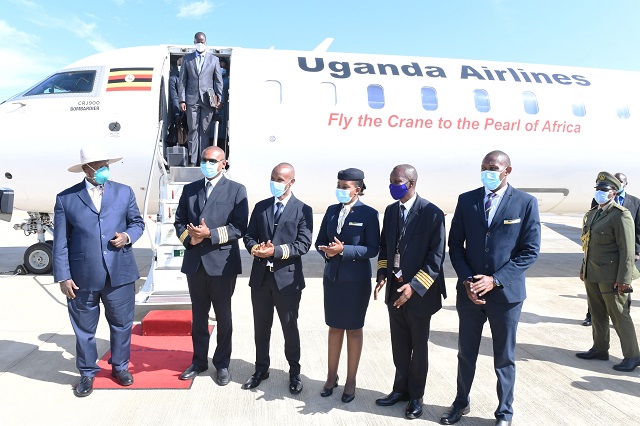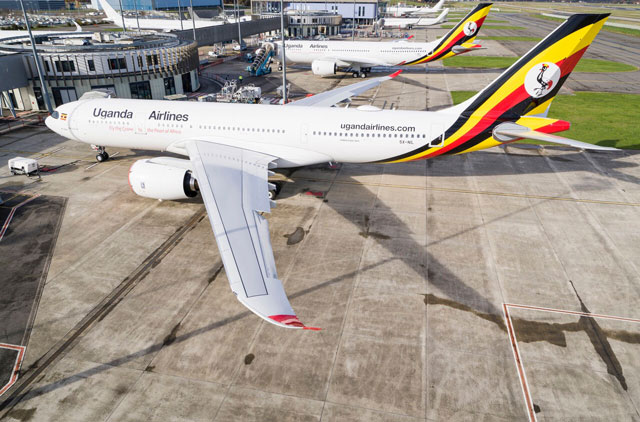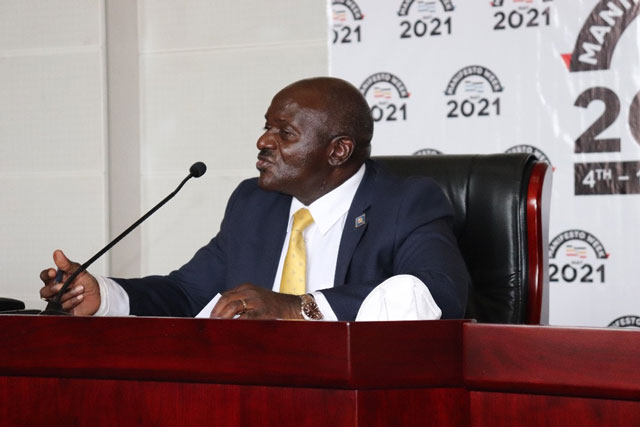
Three CEOs, a global pandemic, a corruption scandal, a managerial wipeout and two brand new Airbus A330s on ground for 6 months – what went wrong?
COMMENT | DEREK NSEKO | Less than two years ago, Uganda celebrated the return to skies of the latest reincarnation of its National Airline. During a media briefing, the Airline’s top brass took turns at the podium. Ephraim Bagyenda, the CEO, Jennifer Bamuturaki, the commercial director and Cornwell Muleya, the startup Airline’s technical advisor all had glowing remarks about the airline and its prospects for the future.
What the watching public could not have guessed is that these aforementioned three would go on to play leading roles in a Uganda Airlines’ ‘trilogy’. To borrow a famous quote from the critically acclaimed epic, ‘In the game of thrones, you either win or you die’
The airline could not have had a better start, announcing route after route in an ambitious network expansion campaign and with an eye on regional dominance. With four brand new CRJ 900 aircraft, Uganda Airlines had the perfect tool for regional operations. A regional jet, with just about the right size and flexibility to balance capacity and demand across the network. After all, no Airline ever went out of business for having an aircraft too small. Large wide body aircraft along with blue ribbon intercontinental routes have very often been the poisoned chalice that has eaten away on business sense in African aviation.
Less than two years later, three CEOs, a global pandemic, a corruption scandal, a managerial wipeout and two brand new Airbus A330s on ground for 6 months, what went wrong and is there hope for the future of the national airline?

Covid-19 Pandemic
The impact of Covid-19 on global aviation has been well documented, however Pieter Elbers, CEO of KLM put it into context when he described the past year as the worst in the 100 year old company’s history.
African Airlines who already have a less than desirable financial record have not been spared. Air Namibia collapsed after 75 years, Malawi Airlines was facing liquidation in the early part of 2021, Air Mauritius had to enter administration and subsequently faced a restructuring, Air Tanzania, Air Zimbabwe and Kenya Airways have had to receive substantial bailouts from their respective governments in order to stay afloat. The crisis and consequent need for financial aid seemed to be the perfect opportunity to paper over the cracks of poorly run entities.
The auditor general’s report on performance of state owned entities revealed Uganda Airlines to be the worst performing with a staggering debt of Sh102 billion accumulated in the 2019/20 financial year.
With a about half of the year spent kick-starting operations and establishing itself in the regional market, and the other half consumed by an unprecedented air transport crisis as a result of the corona virus, the airline could be forgiven for realising only about 10% of projected revenue. However, during this same period, the Airline’s expenditure sky-rocketed, going way above budget and leaving more questions than answers.

But one state owned airline did not back this trend. Ethiopian Airlines did not just weather the storm, it managed to turn a profit and cemented its position as a shining example and benchmark for success in Africa. How did they do it and what lessons can we learn?
The flag carrier displayed remarkable resilience and agility throughout the crisis, converting a large number of its passenger aircraft to enable transport of cargo. Aircraft manufacture Airbus presented the Airline with an award for its unique response to the crisis
Hadi Akoum, Airbus Vice President, Sales for Africa said during the award presentation, “This is to express the admiration of Airbus executive management and Airbus employees for the unbelievable achievement of Ethiopian Airlines in this unprecedented epidemic. While other airlines were just trying to figure out what to do, Ethiopia Airlines was aggressively pressing ahead finding solutions, creating solutions, converting their passenger aircraft to freighters.”
He added that, “Ethiopian Airlines is the first one to do it on Airbus A350 and continues to fly and create even new business. This is something unique all over the world. Today, Ethiopian Airlines is able to maintain the operation of all fleet where others are at 10 percent of their capability, and many airlines have just simply gone bankrupt and people have lost their jobs. This has been done because of visionary leadership of Mr. Tewolde GebreMariam. Ethiopian Airlines today is showing an example to the whole world in resilience and visionary thinking of leadership”
Corporate governance
Corporate governance is essential to the separation of management and ownership in the modern corporation. Accountability in the use of power, authority and ownership and aligning the interests of individuals, corporations and society is critical to the success of a state owned entity such as a national airline.

Lack of Leadership stability is a challenge facing African aviation with the direct consequence being that long-term thinking and strategy is severely hampered. Embattled flag carrier, South African Airways is currently being led by its 13th CEO in 12 years and emerging from 18 months of business rescue, a form of bankruptcy protection
Uganda Airlines is currently starting a 3rd CEO tenure in under 2 years and in the midst of a leadership crisis. While corporate governance failures are an all too familiar story in Africa, a culture of successive appointments at the top including acting and interim executives can only damage stake holder confidence and the image of the Airline as it points to a high degree of instability and political interference.
Political interference rears ugly head
The national airline is a strategic asset that’s woven into the fabric of the economy with long term thinking and broader economic benefits in mind. However, interventions such as the one currently happening at the airline only serve to diminish the legitimacy of government ownership knowing that corruption is a culture in the public sector and corporate governance a big challenge for state owned entities.
There is no CEO in the world who will steer the airline to success as long as a high degree of political interference drives key appointments and higher authorities cannot keep their hands off of day to day operations and let professionals do their work. Good governance principles can only be successful when those placed in positions of authority are left to manage and the same CEOs lead with principle and strict values because their careers and reputations are equally at stake
While stamping down on corruption is commendable, Uganda Airlines will need to completely overhaul itself and enhance the accountability and performance of those entrusted to manage it.
********
 The writer, Derek Nseko is an aviation expert, a qualified commercial pilot and managing director at iFly Global. He is the founder of Airspace Africa an online publication dedicated to African aviation.
The writer, Derek Nseko is an aviation expert, a qualified commercial pilot and managing director at iFly Global. He is the founder of Airspace Africa an online publication dedicated to African aviation.
derek@airspace-africa.com twitter: @av8r_derek
 The Independent Uganda: You get the Truth we Pay the Price
The Independent Uganda: You get the Truth we Pay the Price



Corruption in public sectors can best be addressed by “iron hand”. Entertaining incompetent officials is never a solution to poor service delivery.
The world shall surely thank the truthful and loyal, competent leaders in these country